

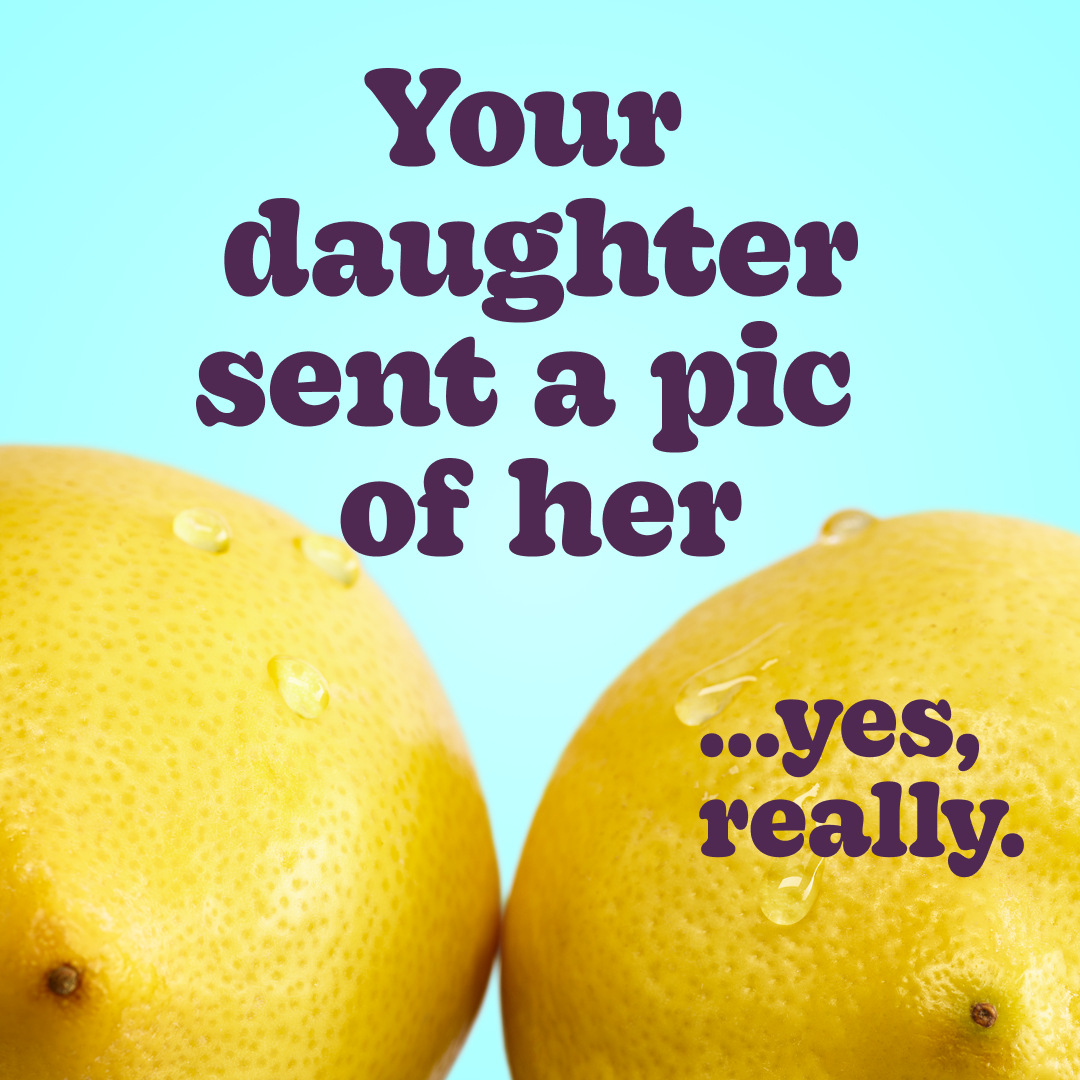
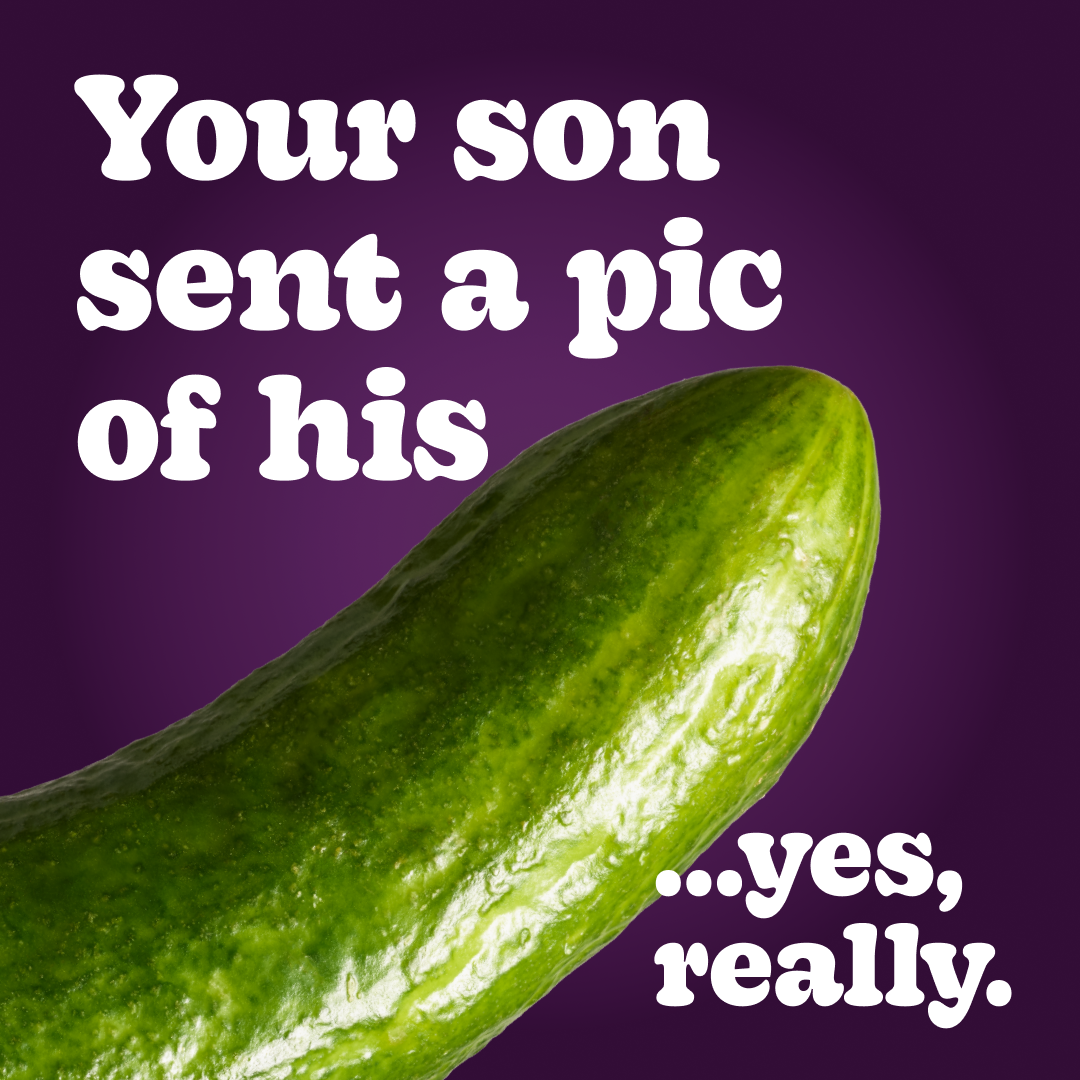
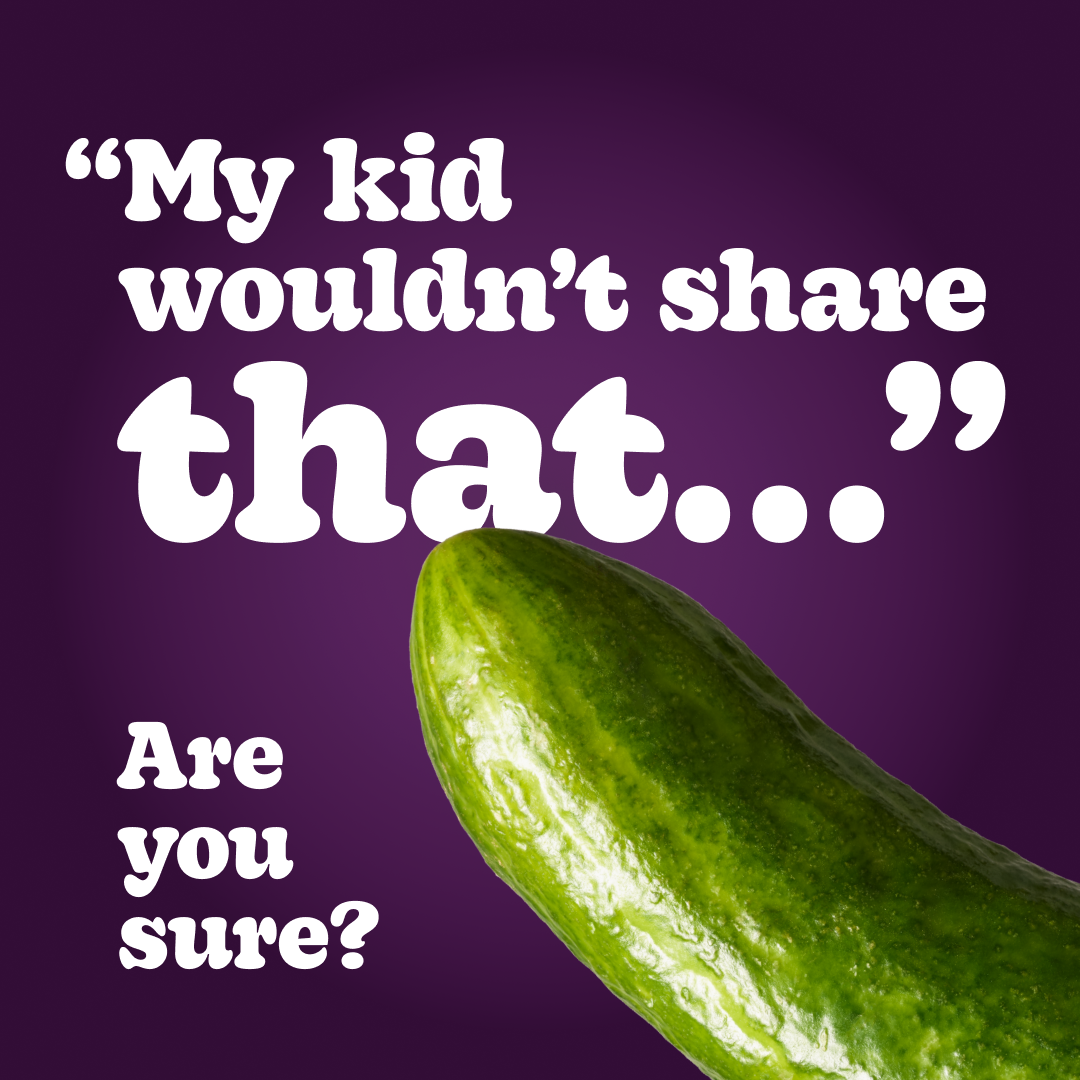
If your kid hasn’t shared, you can bet they know someone who has.
To keep your kids safe, you need to talk about it.


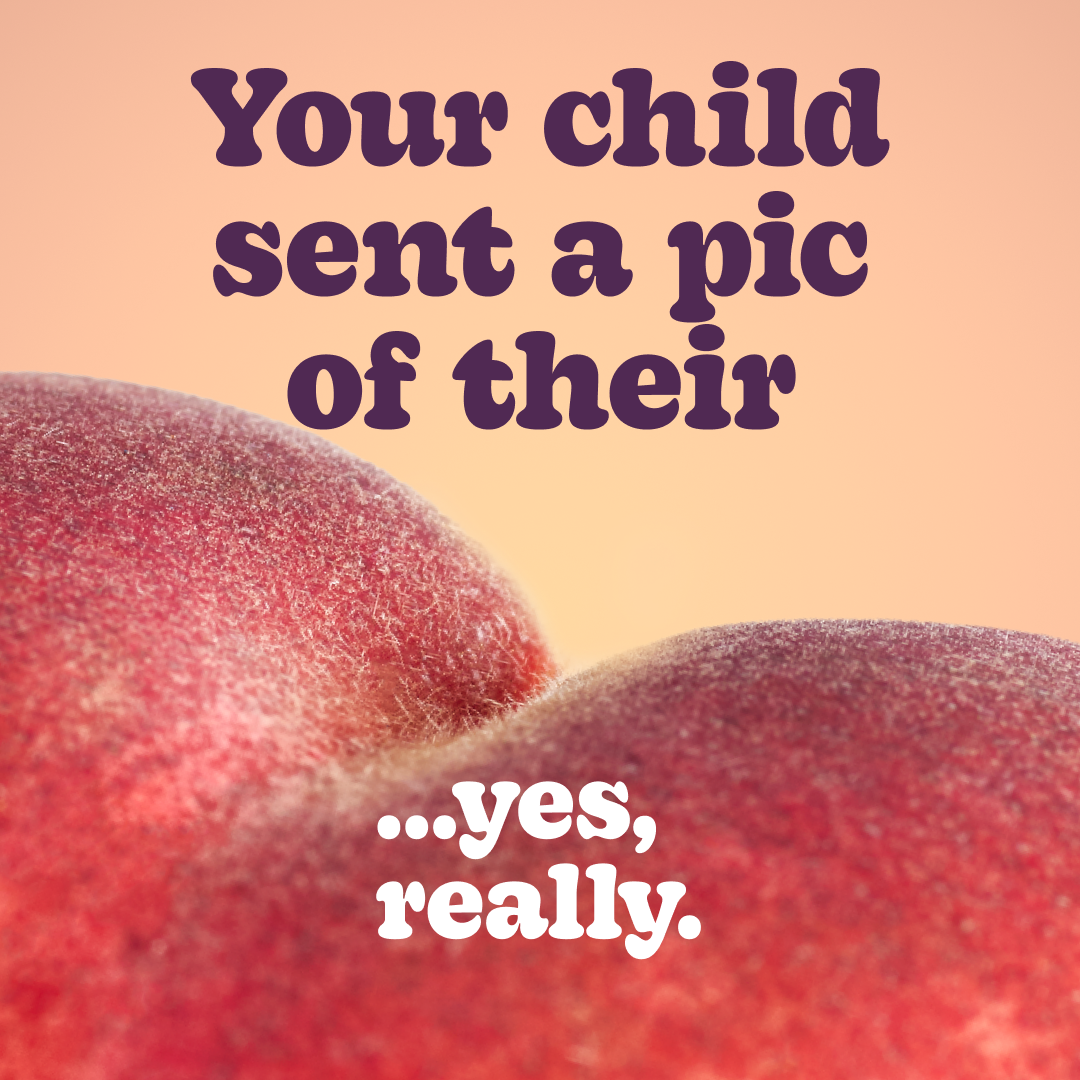
Teens are sharing images for all kinds of reasons. In a safe relationship, sharing can be a means of exploring their sexuality, and building trust.
But there’s also a lot of social pressure – and both girls and boys are sharing nudes, even when it feels wrong.
Regardless of the reason, it is worth remembering that it is illegal to share nude images of anyone under the age of 18, and the consequences of sharing could be devastating for young people.
Images being shared in confidence are routinely being ‘leaked’, and shared more widely across peer groups. This can lead to bullying and shaming.
Some teens (mostly boys) are even engaging in ‘collecting’ behaviours – collecting nude images like they would football cards. This behaviour isn’t just wrong. If the nudes are of someone under 18, it’s illegal.
Read the latest research by the International Policing and Public Protection Research Institute (IPPPRI) on this topic to learn more.
Around one in five children aged 10-15 years old spoke to someone online who they had never met in person before (published the Office for National Statistics in March 2024).
This opens the door to grooming and abuse. Groomers get to know them, befriend them, and then pressure, manipulate and deceive in order to get them to share sexually explicit images.
Download our How to Talk guide for top tips on how to get the conversation started – and help keep your kids safe online.
Talking to your kids about nudes is awkward. And as parents, our protective instincts can lead us to get angry, or emotional. Find a calm moment and open a conversation – perhaps with a non-targeted question, such as:
• What do you know about nudes?
• Have you spoken to anyone new online recently?
• What are you and your friends sharing at the moment?
The most important thing is to listen, and avoid any judgement or blame. Ultimately, you know your kids best.
If your child lets you know that they’ve shared nudes, try to stay calm and come up with a plan of action together.
That way you can make them feel more empowered, and less alone.
If their images are being shared by their peers, an action plan might look like this:
If you think your child might be in danger, call 999 straight away
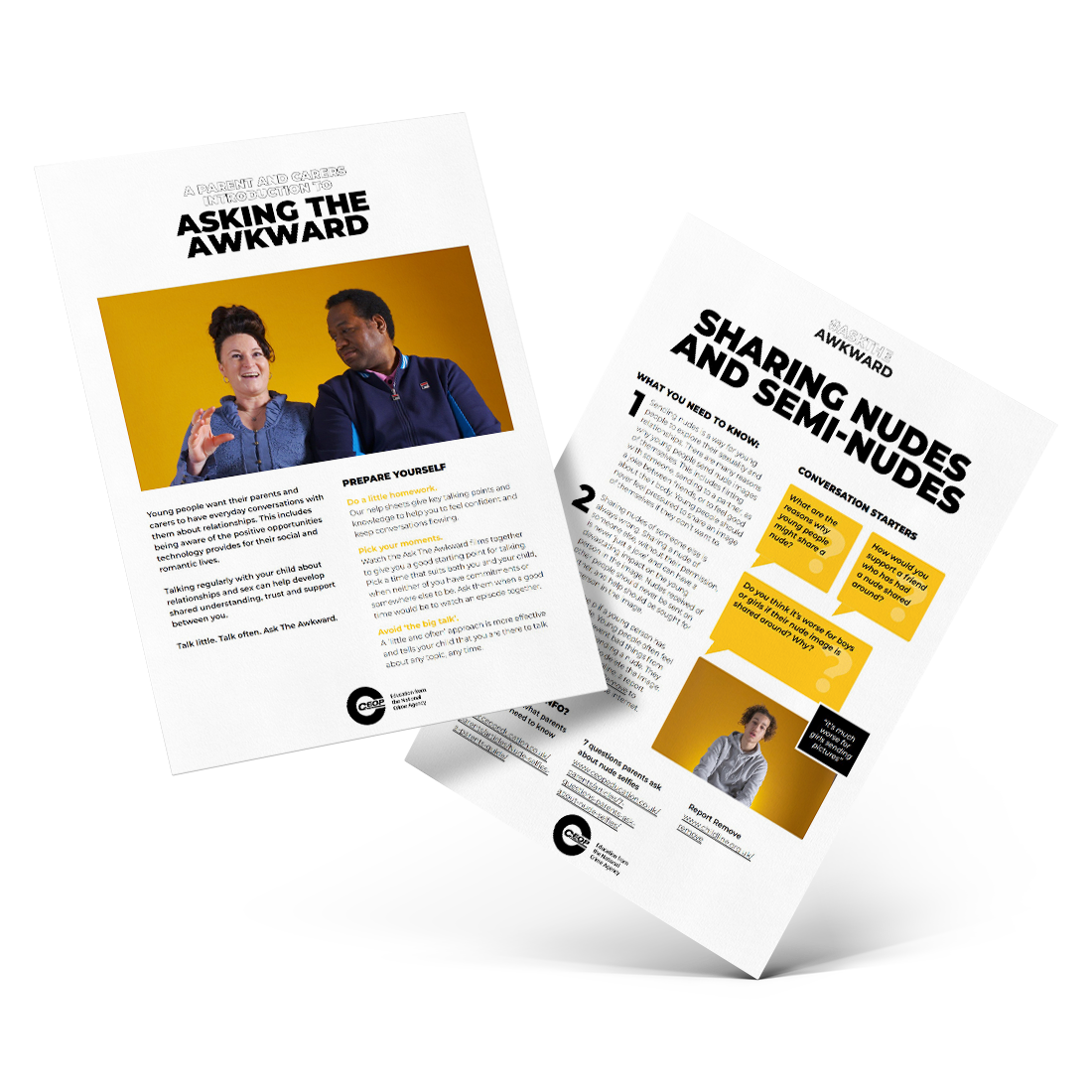
Mums ad
Diane Morgan ad
Dads ad